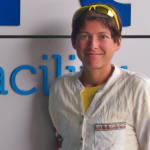By Bobby Du & Paul-Antonin Dublanche
An efficient and reliable public transit system plays an important role in mitigation of congestion and attraction of more users from private car. However, sophisticated traffic condition and dynamic travel demand often make public transit services unstable and uncertain, which results in longer waiting time especially during peak hours or special events. One common phenomenon called bus bunching (BB) or platooning usually happens when the headway between successive buses arriving at the same bus stop is less than the scheduled headway or a certain threshold. BB is a major source of congestion, which not only causes passengers’ travel time delayed and extra waiting time, but also degrades the bus operation performance. Most of the prior researches on BB were limited in a single or multiple bus lines, consequently, only a few studies were found that focused on the whole bus network in a city or even larger region. Recent advances in big data create new opportunities for exploring BB problem in a large-scale scope.







